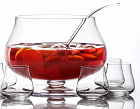In the early 1980s, the Osborne Computer Corporation had a little personal computer—an early portable (well, "luggable") computer named the Osborne 1. A couple of years after the computer was released, Osborne announced that it was working on new models. Potential customers, anticipating a newer, better product, held off on buying an Osborne 1. The new models weren't ready, though, and sales of the original Osborne 1 fell off so precipitously that the company ended up going out of business.
 At least, that's the story. (There might have been a few additional wrinkles to this, like the release of cheaper competitors.) But whatever the details, this story gave rise to the term Osborne Effect—the phenomenon when customers don't want to commit to a product because they fear that they'll miss out on a better one that will be available Real Soon Now.
At least, that's the story. (There might have been a few additional wrinkles to this, like the release of cheaper competitors.) But whatever the details, this story gave rise to the term Osborne Effect—the phenomenon when customers don't want to commit to a product because they fear that they'll miss out on a better one that will be available Real Soon Now.
We're probably all familiar with the Osborne Effect in our own lives. If you've ever shopped for technology—a computer, a cellphone, a TV—you probably had to consider whether you shouldn't maybe wait for the next model. And there is always a next model; as consumers, we've been well trained to anticipate product cycles. I suppose that if you squint real hard, you could say that the clothes on a clearance rack at Target or Nordstrom are an acknowledgment of the Osborne Effect, namely that people don't want to buy last season's clothes, at least not at full retail price.
The naming consultant and general word person Nancy Friedman introduced me to the Osborne Effect via an article in Clean Technica about how it's playing out in the auto industry. The author suggests that as interest in electric vehicles spikes, sales of cars overall will dip while enough people hold off on buying fossil-fuel cars (forever) and hold off on buying EVs. In the latter case, it's because they're waiting for the EVs that can replace their fossil-fuel vehicles. The problem, as with the story of the Osborne 1, is that the newer, better models just aren't there yet.
Anyway, the next time you're experiencing decision paralysis about whether to get this year's model (of anything), you can pride yourself on the possibility of participating in the Osborne Effect.
Let's move to origins. For today I've got punch, the drink, as in rum punch. It's not obvious why a drink would be named using the same word as we use for whacking someone. Perhaps it's the alcohol? Let's see.
 An explanation you'll often find is that punch is related to the Sanskrit word panca, which means "five." The notion is that punch was traditionally made with five ingredients (or "medicaments," as the OED lists it). If this story holds, it means that name of punch-the-drink is related to pentagram and pentagon, quintuples, and via the magic of Germanic sound shifts, five, finger, and fist.
An explanation you'll often find is that punch is related to the Sanskrit word panca, which means "five." The notion is that punch was traditionally made with five ingredients (or "medicaments," as the OED lists it). If this story holds, it means that name of punch-the-drink is related to pentagram and pentagon, quintuples, and via the magic of Germanic sound shifts, five, finger, and fist.
The word punch for smacking someone is apparently unrelated. That word seems to come from the same source as pounce and puncture. It's possible that punch="five" isn't correct, and that punch-the-drink is related, name-wise, to getting punched. But the 5-ingredient explanation is the one you'll find most often.
What if you're punch-drunk? You might think that punch-drunk comes from drinking too much punch. But it seems instead to refer to the daze that a boxer is in if they've been hit too hard too many times. Frankly, if I were punch-drunk, I'd prefer it to be the result of drinking, not getting hit. Hopefully I can just avoid it altogether.
Like this? Read all the Friday words.